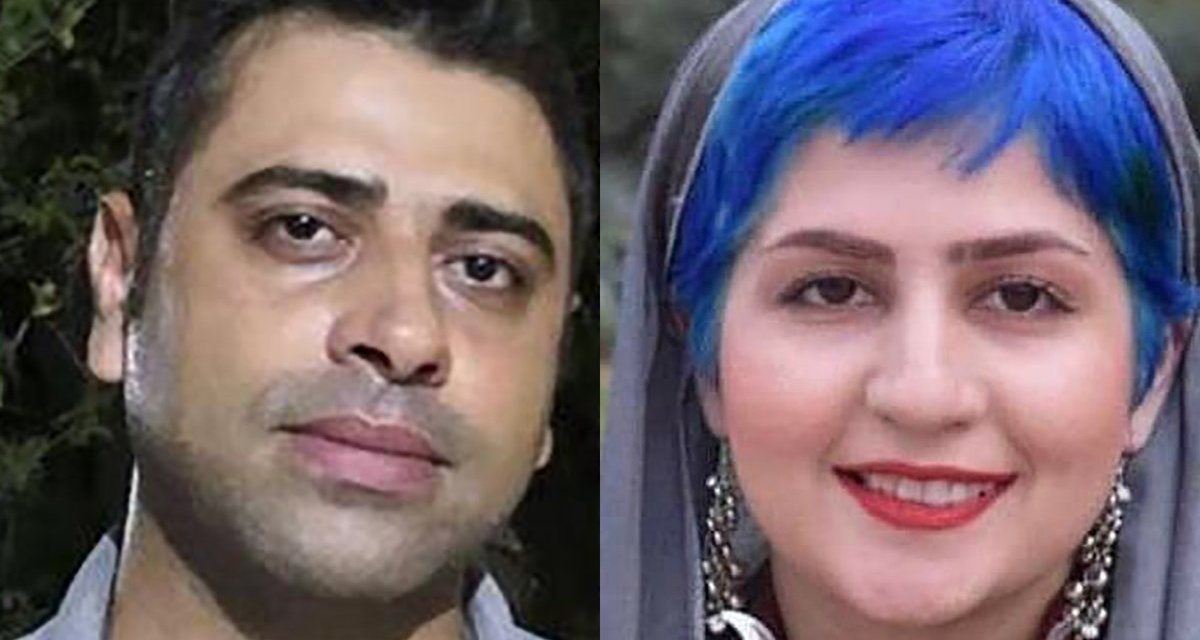Iranian labor activists Esmail Bakshi (L) and Sepideh Qolian
Amnesty International has appealed for the release of Iran’s detained labor activists, seized amid protests across the country over economic and employment conditions.
In a letter to President Hassan Rouhani, Amnesty expressed “grave concern” for Esmail Bakhshi and Sepideh Qolian, both rearrested in Ahvaz in southwest Iran on January 20.
Bakhshi and Qolian were initially detained in November as they attended a peaceful protest in front of the governor’s office in Shush, Khuzestan Province, about the unpaid wages of workers at the Haft Tappeh sugar cane company. Several sugar mill workers were also imprisoned.
Iran Daily, Jan 21: Regime Cracks Down on Labor Activists Amid Protests
The two activists were released in December, but angered officials by speaking out about the abuse they suffered behind bars. They are now being held, without access to lawyers, in an Intelligence Ministry detention centre in Ahvaz.
Leading regime officials, including judiciary head Sadeq Larijani and Iran’s chief prosecutor, said the allegations of torture are false. State TV broadcast video claiming Qolian and Bakhshi are linked to a foreign-based Marxist group, an allegation denied by the Marxist organization.
Qolian said forced “confessions” were recorded in prison, with security officials threatening to broadcast them if she ever claimed torture.
Bakshi has said of treatment in prison:
I was beaten up and tortured to death for no reason. I was so badly battered that I could not move for 72 hours in my solitary confinement cell. The pain was so unbearable that it made sleeping impossible.
Weeks after my release, I still feel intolerable pain in my broken ribs, left ear, and testicles.
In the letter to Rouhani, Amnesty state that Bakhshi and Qolian are “prisoners of conscience, jailed solely for peacefully exercising their rights to freedoms of expression, association, and assembly”. The organization asks that “they are protected from further torture and other ill treatment”, and that “their allegations of torture are investigated and those responsible are brought to justice in fair trials”.
Amid long-standing economic problems, Iranian workers have regularly protested unpaid wages and poor conditions. This month 100 workers went on strike at the Asalouyeh Petrochemical Plant in southern Iran. Bus drivers have demonstrated in Tehran, while sugar mill workers continue to protest in Haft Tappeh.
The Iranian Labor News Agency says wages now cover only 25% of the cost of living, compared to 50% a year ago. Unions say minimum wage provides 11,150,000 rials (about $115 per month), compared to expenses of 40 to 50 million rials (about $500).


Her blue color hair is making mohammad’s rotten corps to turn in grave. She has to be punished.